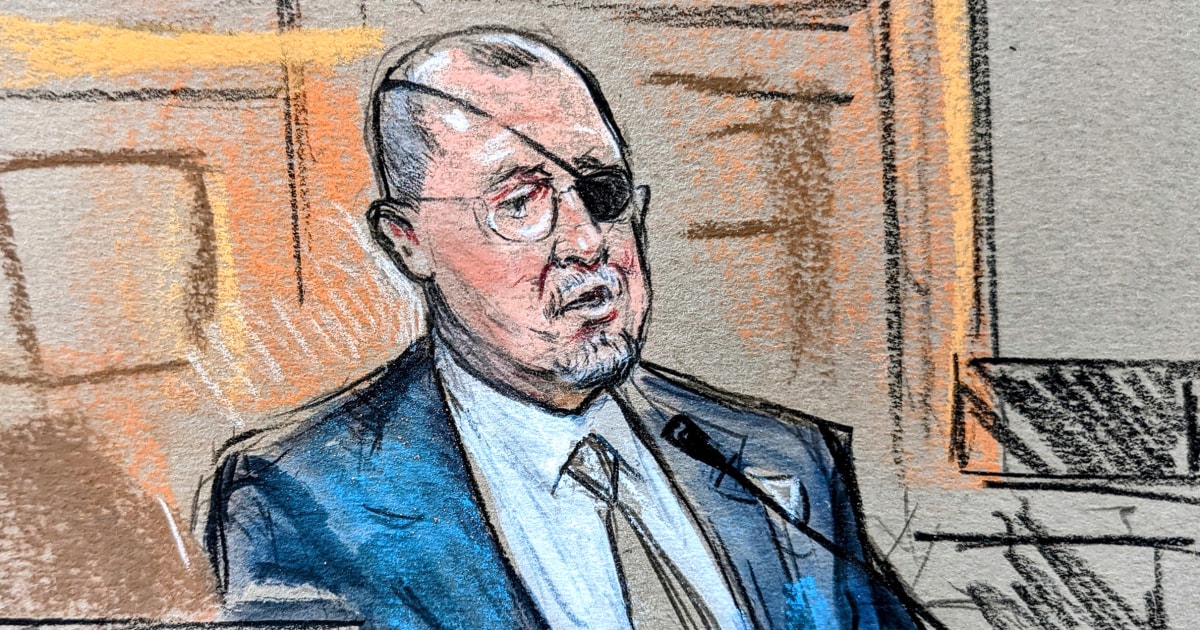The Oath Keepers will not escape justice. On Tuesday, Nov. 29, in a closely watched trial, a jury found Oath Keepers founder Stewart Rhodes and another member, Kelly Meggs, guilty of the seditious conspiracy charges that were leveled against them for their role in the Jan. 6, 2021 Capitol riot. While three others were found not guilty of the more serious seditious conspiracy charge, all five of the defendants were found guilty of obstruction of an official proceeding and aiding and abetting.
This monthslong effort placed a great deal of hope in the prosecution. It felt like a chance to both hold Jan. 6 rioters accountable and strike a critical blow against the far right as a movement. But despite Tuesday’s verdict, Americans — prosecutors and citizens — need to remain realistic about the limitations of a trial like this. Formal organizations like the Oath Keepers no longer define the American right-wing landscape. These increasingly decentralized movements may pose problems for prosecutors forced to play a time-consuming and expensive game of extremism whack-a-mole.
Despite Tuesday’s verdict, Americans — prosecutors and citizens — need to remain realistic about the limitations of a trial like this.
The prosecution claimed Rhodes tried to push President Donald Trump to take action to stop Joe Biden’s election, but ultimately took matters into his own hands — along with hundreds of unaffiliated activists. Rhodes and his four co-defendants disputed this in pre-trial filings, of course. “My client did nothing illegal that day, even though it may look inflammatory,” said Phillip Linder, attorney for Rhodes, in his opening remarks. They argued their organization had no criminal intentions, but was instead waiting for Trump to invoke the Insurrection Act.
If Biden’s election was illegitimate, the Oath Keepers were ready to defend Trump’s legitimate one.
“[Rhodes] believed that the President would issue an order invoking the Insurrection Act, he was prepared to follow it,” wrote Rhodes’ attorney, calling Rhodes behavior “loyalty to an oath taken in defense of the Country,” and suggesting that this belief provides a veneer of legality.
The invocation never came, of course, which didn’t stop Rhodes from rallying supporters to an unavoidable “bloody and desperate fight.” That quote came from encrypted messages sent by Rhodes to his followers. And indeed, the trial has revealed the brazenness of the Oath Keepers, as well as some profound shifts happening in the American right.
The evidence of a seditious conspiracy introduced in the Oath Keepers’ trial was damning, yet obvious. This is an organization whose stated goal is to confront a federal government it sees as illegitimate, openly using the rhetoric of revolution.
The case against them also hinged on the fact that the Oath Keepers were influential, radicalizing the MAGA movement to the point of seditious violence. But while their organizational structure makes them a potential target for prosecution, most activists, either on the right or the left, are no longer members of formal organizations (the number of formal hate groups declined in 2021.) Instead, “Stop the Steal,” Covid anti-mask and “Back the Blue” rallies around the country are packed with people who connect through horizontal social networks, Facebook groups or alternative social media sites like Parler. “Far-right organizing increasingly takes place in online spaces where dissemination is easier and faster,” said Alexander Reid Ross, a geographer who researches far-right social movements. “Mobilizations on the ground become more ad hoc, [populated] by loosely affiliated networks, drawing the center of power away from formal organizations and toward the streets. As a result, formal organizations are being sidelined in favor of more spontaneous militancy.”
The abandonment of formal organizations is not a new idea; white nationalists have been advocating for it since the 1970s.
The abandonment of formal organizations is not a new idea; white nationalists have been advocating for it since the 1970s. In 1992, Louis Beam, a Ku Klux Klan organizer instrumental in mobilizing white Galveston Bay fishermen against their Vietnamese neighbors, published a manifesto titled “Leaderless Resistance.” In it, Beam pointed to a key vulnerability for organizations like the Klan. The federal government, he said, could too easily infiltrate, pull member lists, and then prosecute those members, even using organized crime statutes like RICO.
The answer to this, Beam argued, was to disperse into more informal networks and affinity groups. Going even further, neo-Nazi Alex Curtis promoted “lone wolf” attacks, featuring militants completely separated from formal organizations.
And it’s not just the hard core white nationalist fringe that is shifting this way. The Capitol attack is a prime example. While clearly taking some direction and influence from members of the Oath Keepers and Proud Boys in their midst, many rioters operated more impulsively — especially once the violence started.
This is not to undermine the importance of this trial. Successfully prosecuting Oath Keepers is, without a doubt, a net benefit. Prosecutions can take some key organizers off the street and disrupt an influential organization. But law enforcement seems ill-equipped to confront a movement that is constantly shifting its tactics, identity and even beliefs. Rigid prosecutorial methods only work when they are anchored to an unmoving target, one that can show an organizational pedigree and ideological motivations.
At the same time, the conspiracy theories, nativism and penchant for revolutionary language is now becoming standard across the Republican Party, particularly among MAGA-aligned figures like Rep. Paul Gosar, Rep. Marjorie Taylor Greene and Arizona state Sen. Wendy Rogers. Greene has engaged with numerous conspiracy theories that center on secret cabals in the government, such as the QAnon theory, and said in a 2020 video that freedom must be “earned with the price of blood.” Wendy Rogers, a member of the Oath Keepers, still argues that the presidential election was stolen, that the insurrection was not actually perpetrated by MAGA faithfuls, and that nonwhite people are being used to “replace” American whites, an antisemitic, white supremacist conspiracy theory known as the great replacement theory.
Meanwhile, movements like the “national conservatives,” a loose collection of nationalist Republican activists and politicians, boast members with impressive college degrees, but propose policy and make arguments that overlap with the Oath Keepers’ worldview. For example, failed Arizona Senate candidate Blake Masters built his entire campaign on a potentially violent battle for the soul of America. While certainly more polished, some of Masters’ talking points would not be out of place at an Oath Keepers meeting.
Unfortunately, even if the most extreme actors are eliminated, the consequences of their ideas could remain. For those concerned about the threat of the far-right, both of seemingly impulsive violence and policies that spell disaster for immigrants, the LGBTQ+ community and reproductive health, a string of successful prosecutions will simply not be enough to defend marginalized communities. While it would be comforting to assume that a robust legal system will be able to identify and quarantine those looking to subvert liberal democracy, the reality is less black and white.
Instead, it is going to require an “all hands on deck” approach from activists, community groups, religious organizations, non-profits and more. This means organizing large coalitions that have the ability to put pressure on venues hosting far-right events and tech companies platforming conspiracy accounts. These coalitions need to build a mass movement that can counter-organize and protest at the scale necessary to disrupt the far-right’s ability to function and build community.
These are the methods that have proven to work over the past several years, demoralizing, deplatforming and disrupting far-right activists. While legal methods like lawsuits have proven effective, and prosecutions have dismantled some of the most dangerous far-right terrorist groups, the effort to fully unseat the rise of white nationalism will only come from a mass wave of organized resistance that seeks to make the environment inhospitable to racist scapegoating.
Share your story or advertise with us: Whatsapp: +2347068606071 Email: info@newspotng.com










